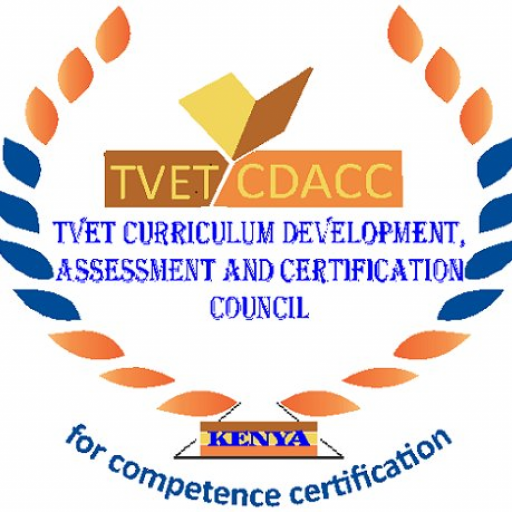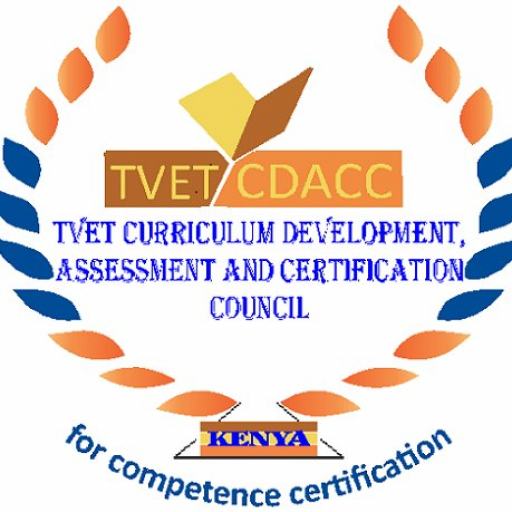You can learn more from our Frequently Asked Questions
It is a body corporate created by an Act of Parliament, TVET Act No. 29 of 2013 to undertake to design and development of competency based curriculum, examinations, assessment and competence certification in TVET.
TVET CDACC is a public organization.
Both are independent corporate bodies created by the same Act, TVET Act No. 29 of 2013. TVET CDACC is mandated to design and develop competency based curriculum, assessment and competence certification in TVET while TVETA mandate is to promote access, equity, quality and relevance in technical and vocational education and training by regulating, inspecting, registering, accrediting and licensing institutions, trainers and programmes.
TVET refers to a range of learning experiences which are relevant to the world of work. It equips people with vocational skills and a broad range of knowledge, skills and attitudes for meaningful participation in work and life.
The functions of the Council as stipulated in the TVET Act are to:
Undertake design and development of curricula for the training institutions’ examination, assessment and competence certification;
Make rules with respect to such examinations and competence assessments;
Issue certificates to candidates who satisfy national TVET examination and competence assessment requirements; and
Promote recognition of its qualifications in foreign systems;
Investigate and determine cases involving indiscipline by candidates registered with it;
Promote and carry out research relating to its examinations;
Promote the publication of books and other materials relevant to its examinations;
Do anything incidental or conducive to the performance of any of the preceding functions.
Undertake design and development of curricula for the training institutions’ examination, assessment and competence certification;
Make rules with respect to such examinations and competence assessments;
Issue certificates to candidates who satisfy national TVET examination and competence assessment requirements; and
Promote recognition of its qualifications in foreign systems;
Investigate and determine cases involving indiscipline by candidates registered with it;
Promote and carry out research relating to its examinations;
Promote the publication of books and other materials relevant to its examinations;
Do anything incidental or conducive to the performance of any of the preceding functions.
It is a training approach whereby trainees are required to demonstrate attainment of pre-determined levels of competence under given conditions in order to be judged as having successfully acquired required skills, knowledge and attitudes.
TVET CDACC is mandated to undertake design and development of curricula, examination, competence assessment and certification in TVET.
Step 1. Application to the Council (Attach TNA Report)
Step 2. Approval of application by the Council
Step 3. Appointment of Sector Skills Advisory Committee (SSAC) members
Step 4. Development of Job/Occupation Analysis Chart by Experts (5-12)
Step 5. Verification of Job/Occupation Analysis Chart by Experts
Step 6. Development of Standard Task Analysis Charts by Experts
Step 7. Packaging of Occupational Standards by Experts
Step 8. Evaluation and validation of the occupational standards by SSAC
Step 9. Packaging of competency based curriculum by curriculum development committee
Step 10. Evaluation of draft curriculum by the Council (Council may invite experts during evaluation)
Step 11. Evaluation of the draft competency based curriculum by SSAC
Step 12. Validation of draft curriculum by Stakeholders
Step 13. Forwarding of draft curriculum to Council for approval by SSAC
Step 14. Approval of curriculum by the Council for Piloting /Implementation
Step 2. Approval of application by the Council
Step 3. Appointment of Sector Skills Advisory Committee (SSAC) members
Step 4. Development of Job/Occupation Analysis Chart by Experts (5-12)
Step 5. Verification of Job/Occupation Analysis Chart by Experts
Step 6. Development of Standard Task Analysis Charts by Experts
Step 7. Packaging of Occupational Standards by Experts
Step 8. Evaluation and validation of the occupational standards by SSAC
Step 9. Packaging of competency based curriculum by curriculum development committee
Step 10. Evaluation of draft curriculum by the Council (Council may invite experts during evaluation)
Step 11. Evaluation of the draft competency based curriculum by SSAC
Step 12. Validation of draft curriculum by Stakeholders
Step 13. Forwarding of draft curriculum to Council for approval by SSAC
Step 14. Approval of curriculum by the Council for Piloting /Implementation
Approximately 30 working days if the stipulated TVET CDACC guidelines are followed. However, the period depends on the institution/organization and the SSAC responsible.
This is a committee formed to represents the industry in a specified sector and is involved in the curriculum development in that sector.
No. It is only an institution/organization that can develop a competency based curriculum while involving the industry.
TVET CDACC works closely with all TVET stakeholders
No. TVET CDACC will coordinate competence assessment.
KICD is mandated to design and develop curricula for basic education as per the Basic Education Act, 2012 while TVET CDACC is undertake design and development of curricula for the training institutions as per the TVET Act, 2013.
All curricula developed will be for public use.


